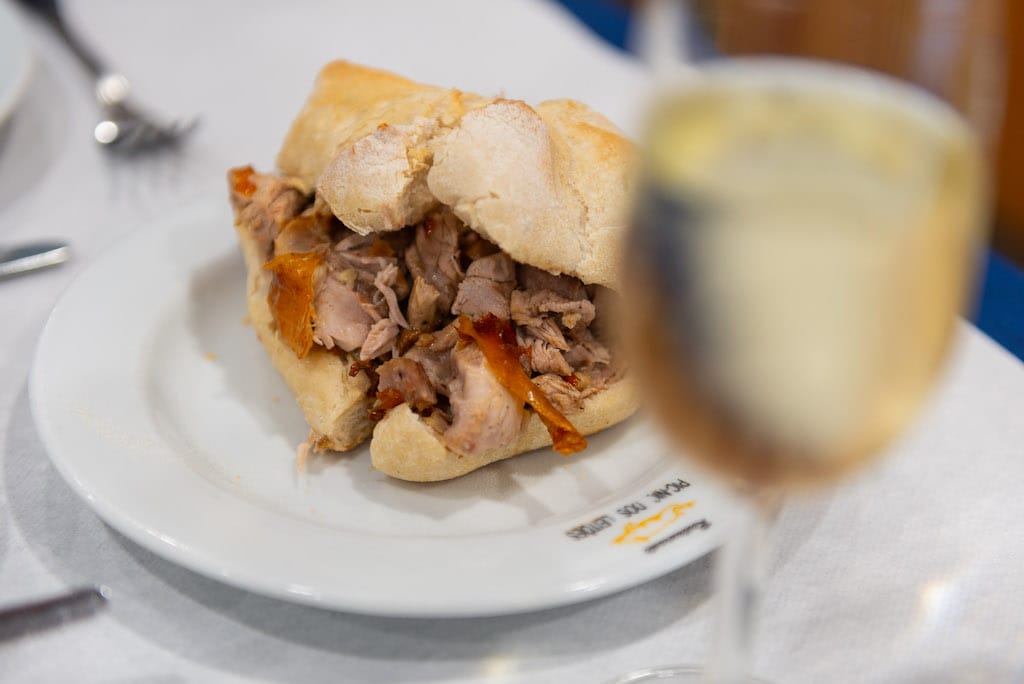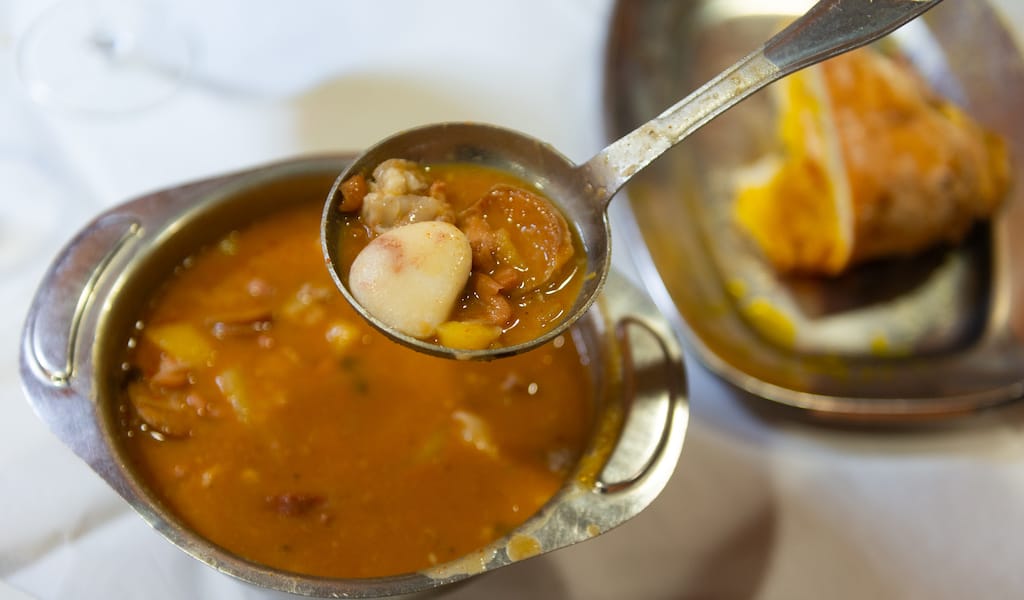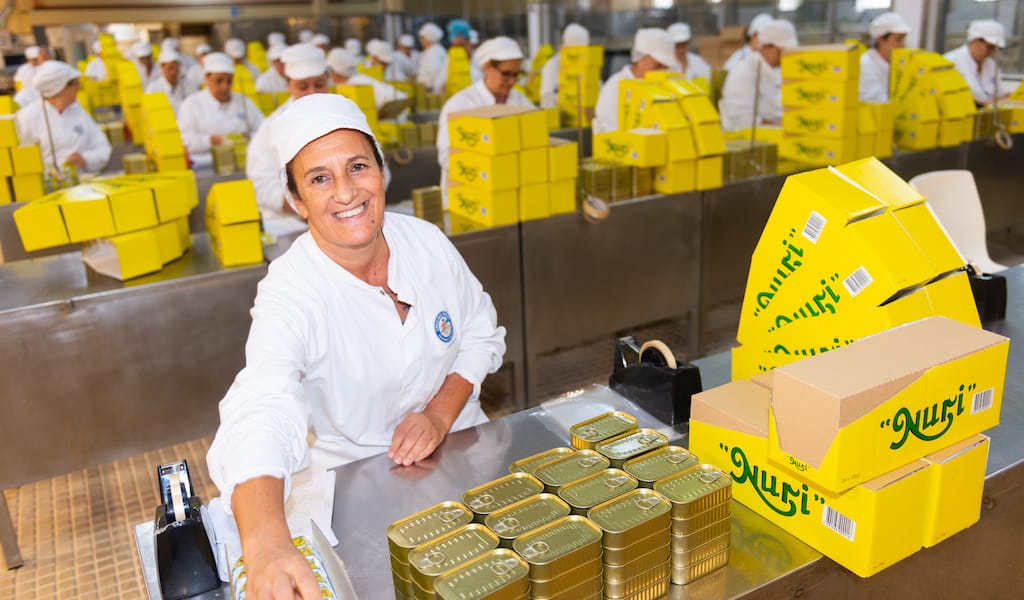Few locals, let alone tourists have reached the isolated mountain village of Ghebi in Georgia’s northern borderlands of Racha. However, many have passed through the doors of its namesake basement restaurant in the bustling left bank district of Marjanishvili in downtown Tbilisi. For more than a decade, the eatery has been steadily serving up comfort food from the region including lobio, the red bean stew with or without the aged Racha salted ham called lori, bean-stuffed pies called lobiani, and skhmeruli, the garlic saturated pan-roasted chicken dish.

Located on Aghmashenebeli Avenue, which is more well known for its profusion of Turkish lokantasi diners with ready-made buffet spreads and Arab restaurants that attract many of the city’s foreign residents and visitors from South Asia and the Middle East, Ghebi remains a staunch local haunt frequented by tables of Georgian men toasting their chachas late into the evening over tables loaded with food. Over the years, Ghebi has been our go-to in the neighborhood when in the mood for Georgian indulgence that’s heavy on the belly and light on the wallet.

Lobio may be a dish of humble origins and one readily found in menus across the country, but the lobio at Ghebi is exceptional. Always cooked fresh, the beans are stewed to creamy perfection while still retaining their beanlike structure and texture. For non-vegetarians, the meaty version stewed with smoky salted ham is highly recommended for its extra depth of flavor. We often end up ordering both versions, served with a garnishing of fresh greens that adds a crunchy bite to the otherwise mouth-melting dish. Mchadi, a Georgian cornbread, is the staple accompaniment to lobio, but we prefer the more opulent version called chvishtari with cheese baked into its core, which Ghebi executes to perfection. Skhmeruli is perhaps Racha’s most famous dish and at Ghebi, the pan-roasted chicken dish basted with copious dollops of garlic and grease is served in generous quantities and in its purest form, unlike the more common version which is toned down with a splash of milk or cream.

We enquire about this on one of our visits. The limelight-shy manager Nona insisted we pose the question to the head chef and oldest employee of the restaurant, 58-year-old Guram Gavasheli. “The original classic skhmeruli uses only sautéed garlic and a bit of water [added to the fried chicken before it’s popped into the oven to finish]; the addition of a milk is a city thing,” insists Guram, a Racha native himself, adding that he does add milk to the garlicky sauce when specially requested by guests. While garlic enthusiasts may be keen to take on the rustic version, the less-initiated might fare better with requesting for the creamier “urban” version that tames the sharp bite of the garlic.
Guram cheerfully informs us that most of the cooks at Ghebi and the owner are also from Racha, so it’s a place to trust on the regional specialties – “But that doesn’t mean we can’t cook food from other regions, OK?” he adds with a hearty laugh.

The expansive menu does include traditional staples from across the country, from charcoal grilled beef kebabs and pork mtsvadi, khinkalis and the whole range of stuffed savory pies and cheese-stuffed khachapuris, none of which disappoint. Our last meal here included a chashashuli (which loosely means “stew” in Georgian) of local wood mushrooms with red and green peppers, tomatoes and onions cooked in a clay pot, and a seasonal spring special – golden pan-fried baby potatoes garnished with fresh dill, a dish we had to reorder twice because it disappeared so quickly after arriving on our table.

Like at many other Georgian restaurants, the welcome at Ghebi can range from effusively friendly to frosty depending on the time of day and the client load. The restaurant also offers 24-hour service but we’ve yet to try it after-hours when the graveyard shift staff take over. But despite the intense work hours, the food has remained consistent on all our visits, as have the very acceptable carafes of house wine that can be ordered by the liter. With its affordable wine and food and endless opening hours, it’s no wonder that this place often turns into a loud party spot late in the evenings.

Head chef Guram tells us he has worked at Ghebi from the time its doors opened a decade ago, starting with just seven tables. At the time its main entrance was from a quiet side street perpendicular to the bustling Aghmashenebeli Avenue. But as word got around and footfall increased, the restaurant expanded within five years to take over the rest of the basement space to accommodate more than 20 tables and secure a more prominent entrance right on the main avenue. The demarcation between the wooden beam-trimmed older section with its faux stone walls and a fireplace with mounted decorative ram horns stands out from the more austere modern section whose bare walls are lined with a modern air-conditioner duct – a visual testament of Ghebi’s success.
In recent years, newer refined Georgian-fusion restaurants have drawn more of the city’s affluent diners to the left bank and made their mark in the city’s dining circuit. But in leaner times when purses are light and bellies rumble, we’re grateful for the modest subterranean cove of comfort food and affordable prices that is Ghebi.
Pearly JacobPearly Jacob
Published on June 02, 2023
Related stories
February 7, 2024
PortoAt first glance, there’s not much to see in Mealhada, a town in Portugal’s central inland Bairrada region about an hour’s drive south of Porto. If there is a main feature here, it’s probably the EN1, the country’s original north-south highway, which slices the town in half, providing a conduit for a seemingly never-ending parade…
January 19, 2024
LisbonIt’s an early example of guilt tripping. The story goes that a monk arrived in a Portuguese village, hungry and clever. He grabbed a rock and carried it door to door, claiming that it was his only ingredient, asking people if they would be kind enough to supplement it so he could make a meal.…
December 7, 2023
PortoMatosinhos, it could be said, has seen better times. In its heyday, the semi-industrial-feeling port city just north of Porto was once home to 54 fish canneries. Today, only two remain. Along the city’s wide, empty-feeling streets, some of the city’s former factories and their graceful Art Nouveau facades have been reappropriated as other businesses…























































































